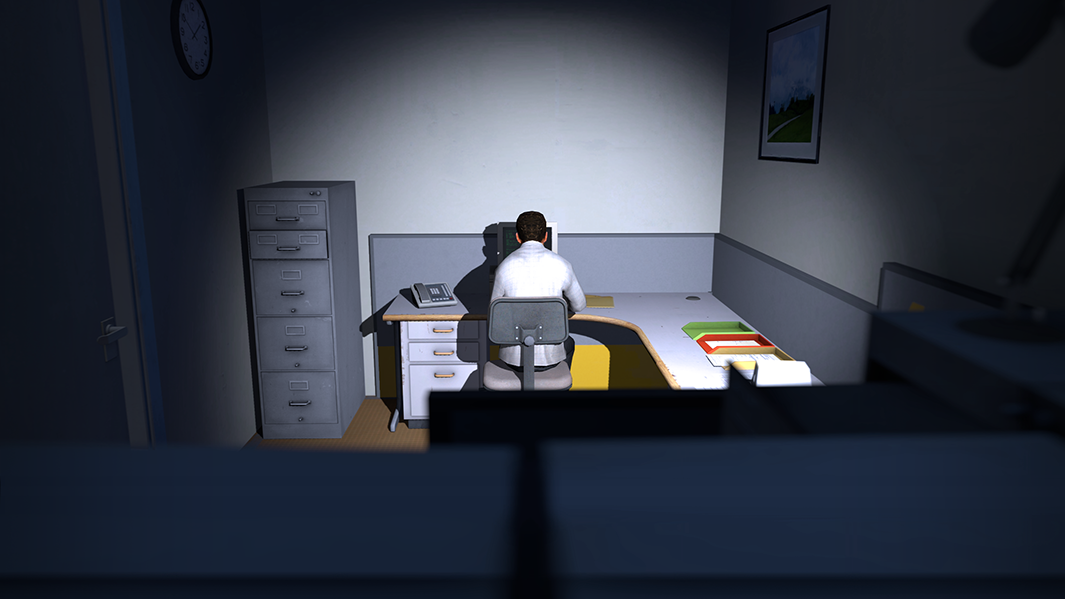The Stanley Parable is a game that deserves an essay for every idea we’ve covered in class – procedural rhetoric, space, sound, narrative, mechanics, genre, etc – but I want to talk about the Broom Closet and the Elevator. While playing, if the player chooses the left door at the first junction, and proceeds through the meeting room, on the left there is an ostensibly innocuous looking door that says “Broom Closet”. I say ostensibly, because in reality the very fact that the door is labelled as such is different from the rest of the doors that are unlabelled or only labelled with office numbers. This is why players may click on it, even if they’ve grown tired of seeing if any of the other doors open (because they almost never do). Upon entering, the player quickly realises there is nothing to interact with and can leave, AND IN EVERY OTHER GAME THEY WOULD.
It is a unique feature of The Stanley Parable that it can fit content into something as absurdly dull as a broom closet. There is absolutely nothing special about the closet once entering. The only thing that changes is the narration, which is just frequent enough for the player to wait. The game sets up the expectation that disappointing or disobeying the narrator leads to a different branch of the narrative, and so the player is encouraged to do something like staying in the broom closet merely to hear the narrator’s frustration. After a while the narrator gives up and stops talking upon which a satisfied player will leave the closet, despite having not progressed the narrative at all. The narrator even REMEMBERS the last instance of this after the game restarts and does not engage the player after they enter a second time, and after a third time the door is literally barred off. The lack of obvious game structure, obvious objectives, and the conditioning to subvert the narrator’s expectation all enable the broom closet sequence to be enjoyable despite containing no narrative progression. The same is true of the elevator in the boss’s office, which cannot actually go up or down but just stays in place playing elevator music. The player attempted to subvert the narrator’s expectations but upon realising the narrator doesn’t care, quickly feels foolish and leaves, understanding they have been duped.


You raise interesting points about the broom closet and the elevator! The game really do play with player’s interpretation and anticipation, driving them to complete normally absurd things. This is intriguing as it raises a new dimension of freedom and choice in the game, in the sense that not only do players disobey the narrative to find futility, they also convince themselves to perform illogical and “meaningless” things so as to evoke a response from the narrator whose presence signals unfreedom. This then points to an enigmatic content-seeking drive in players, which the game also makes fun of by incorporating “new-content.”
Besides this though, I really liked the elevator music.